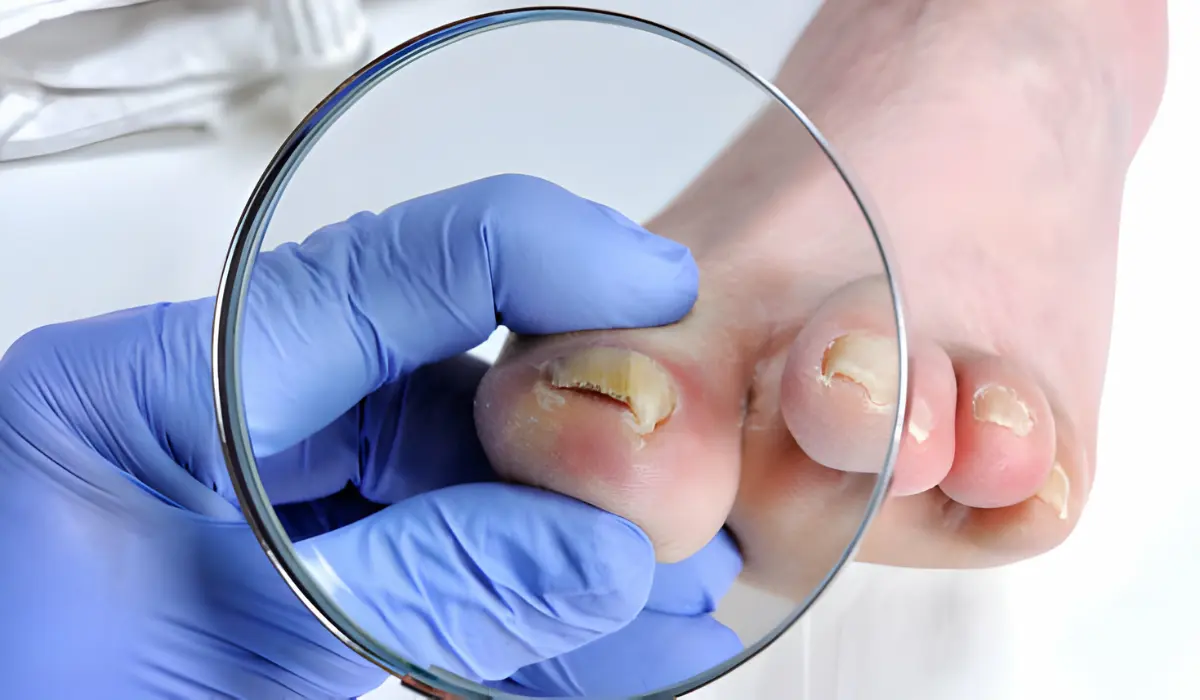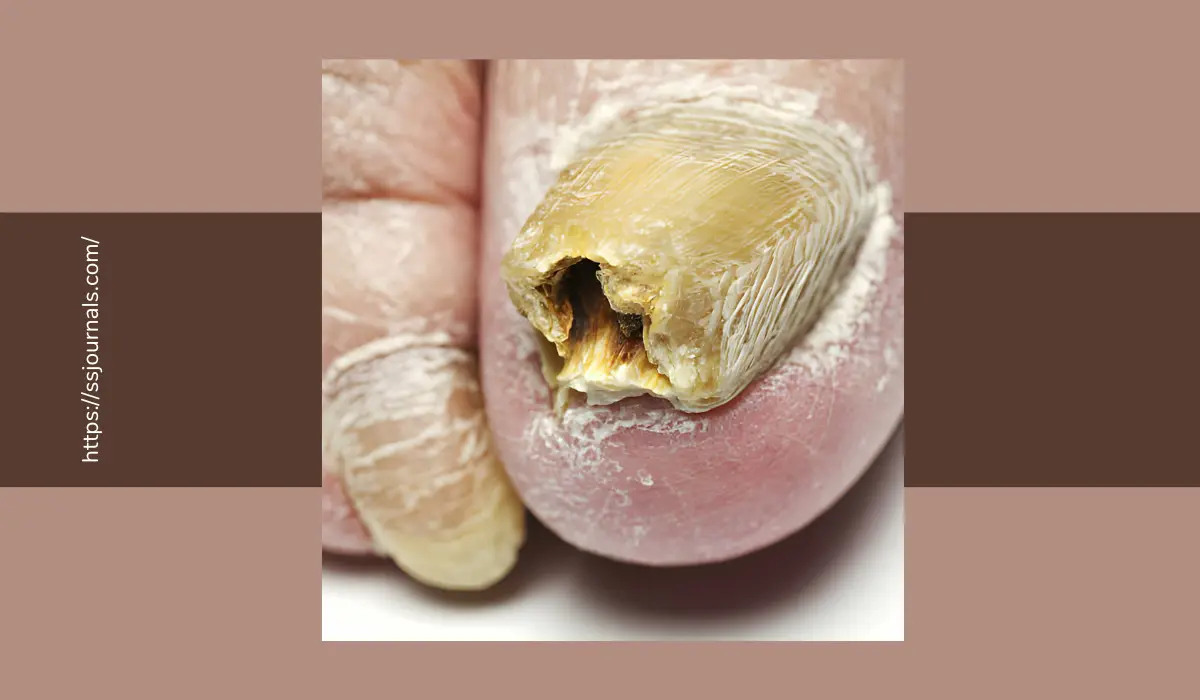Toenail fungus, also known as onychomycosis is a very common fungal infection that affects the toenails. The infection results in discoloration and brittleness of nails and can cause the nail to get detached from the nail bed. Toenail infection is not considered a serious threat. However, the condition rarely causes pain and pus discharge in the affected area.
Onychomycosis is a curable condition often treated by oral toenail fungus medication, medicated nail creams, and also by using at-home remedies. In this article, we will explore what are the new toenail fungal medications. We will also learn some of the home remedies you can follow to cure the condition. Keep on reading to find out the novel ways as well as traditional ways of curing toenail fungus.
Diagnosing Toenail Fungus

Although toenail fungus is the most common cause of nail thickening and blistering some other nail conditions including psoriasis can look similar. Toenail fungus can be diagnosed by a healthcare professional using laboratory testing. The testing may require collecting a nail clipping from the affected part for diagnosis. The diagnosis is crucial for recommending the right treatment for your condition.
You can also do a self-assessment to determine whether you are infected by toenail fungus by examining its symptoms. Look if your nail is:
- Thickened
- Discolored
- Brittle/fragile
- Deformed
- Detached from the nail bed
- Smelly
If you notice all or a combination of the above symptoms, consult a doctor for a professional diagnosis and treatment.
Toenail Fungus Medication and Treatment
There are several toenail fungus medications and treatments for curing toenail fungus. Let’s examine what some of the new prescription medications for toenail fungus are:
1. Oral Medications
Oral toenail fungus medication has a higher curation rate as opposed to topical medications. Additionally, oral treatment requires a comparatively shorter duration which makes it one of the most preferred choices. That said, antifungal medications come with some side effects. Discuss the side possibility of side effects with your doctor openly before considering oral medications for toenail fungus. Some of the novel oral medications include:
a. Terbinafine
According to some sources, terbinafine tablets work better than their alternatives and have fewer side effects. It is usually prescribed to be taken orally once a day for 6 to 12 weeks.
b. Itraconazole
It is found that the medication is effective 60% of the time making it one of the top picks for curing toenail fungus. Side effects may include headaches, stomach upset, and respiratory infection. You can take the medicine once a day for 6 to 12 weeks.
c. Fluconazole
Fluconazole is a medicine that is commonly prescribed for yeast infections, but health professionals sometimes prescribe it to treat the early stages of toenail fungus. However, the FDA approval of the medicine does not extend to toenail fungus.
d. Noxafil
This is a syrup you can take orally to treat toenail fungus. Even though this new medication has been effective for treating the condition, people usually prefer other more affordable and more effective alternatives.
2. Topical Medications
While oral prescription medications are the most effective treatment for toenail fungus. There are several topical medications for toenail fungus such as nail polishes and serums available for the condition. It is usually recommended for mild to moderate toenail fungal infections, or when oral medications are not possible. Some of the popular picks include:
a. Efinaconazole Solution (Jublia): This topical cream is applied on the infected area which creates a hostile environment for the fungus. It is recommended to apply daily for up to 48 weeks. The product demonstrated a complete cure rate of 15% to 17% in clinical trials.
b. Tavaborole Solution: Daily application of the solution can inhibit fungal growth. It is also recommended to apply for up to 48 weeks and demonstrate a 6 – 9% success rate against toenail fungus.
The Over-counter toenail Fungus Medication
In addition to prescription medications, toenail fungus can be also cured by using natural at-home remedies. Home remedies might not be as effective as prescription medications. However, they pose virtually zero side effects and are a more affordable and easier alternative. The home remedies include:
- Vicks VapoRub
- Tea tree oil
- Snakeroot extract
- Oregano oil
- Ozonised oils
- Listerine mouthwash
- Garlic
- Apple cider vinegar
- Probiotics
You can use any of the above twice a day for treating toenail fungus. Remember to dilute highly concentrated oils and solutions such as oregano oil and apple cider vinegar with carrier oils or water. Keep in mind that while over-the-counter medications could improve your conditions, do not hesitate to consult a healthcare professional if the irritation and pain persist.
Summary
Toenail fungus is a common nail condition that is also known as onychomycosis. Onychomycosis is more common in toenails than in fingernails. Even though there are some distinctive symptoms for the condition, some other nail conditions can be mistaken for toenail fungus which calls for an effective diagnosis. Accurate diagnosis is key for determining the treatment of your individual condition.
There are several treatment methods available for toenail fungus. Prescription oral medication is the most effective. New prescription oral medications include terbinafine, itraconazole, fluconazole, and Noxafil. These medications can be taken daily for 6-12 weeks and have cure rates ranging from 15-60%. Topical medications like Jublia, and Tavaborole solution, and over-the-counter remedies like Vicks VapoRub, tea tree oil, oregano oil, garlic, apple cider vinegar, and probiotics can also be used. These are typically used for mild cases or when oral medications cannot be taken.
Home remedies may not be as effective as prescription medications but have little to no side effects. Regardless of treatment, consulting a healthcare professional for proper diagnosis and recommendations is important, especially if symptoms persist or worsen.
What treatment method would you prefer for your condition? Let me know in the comments.

